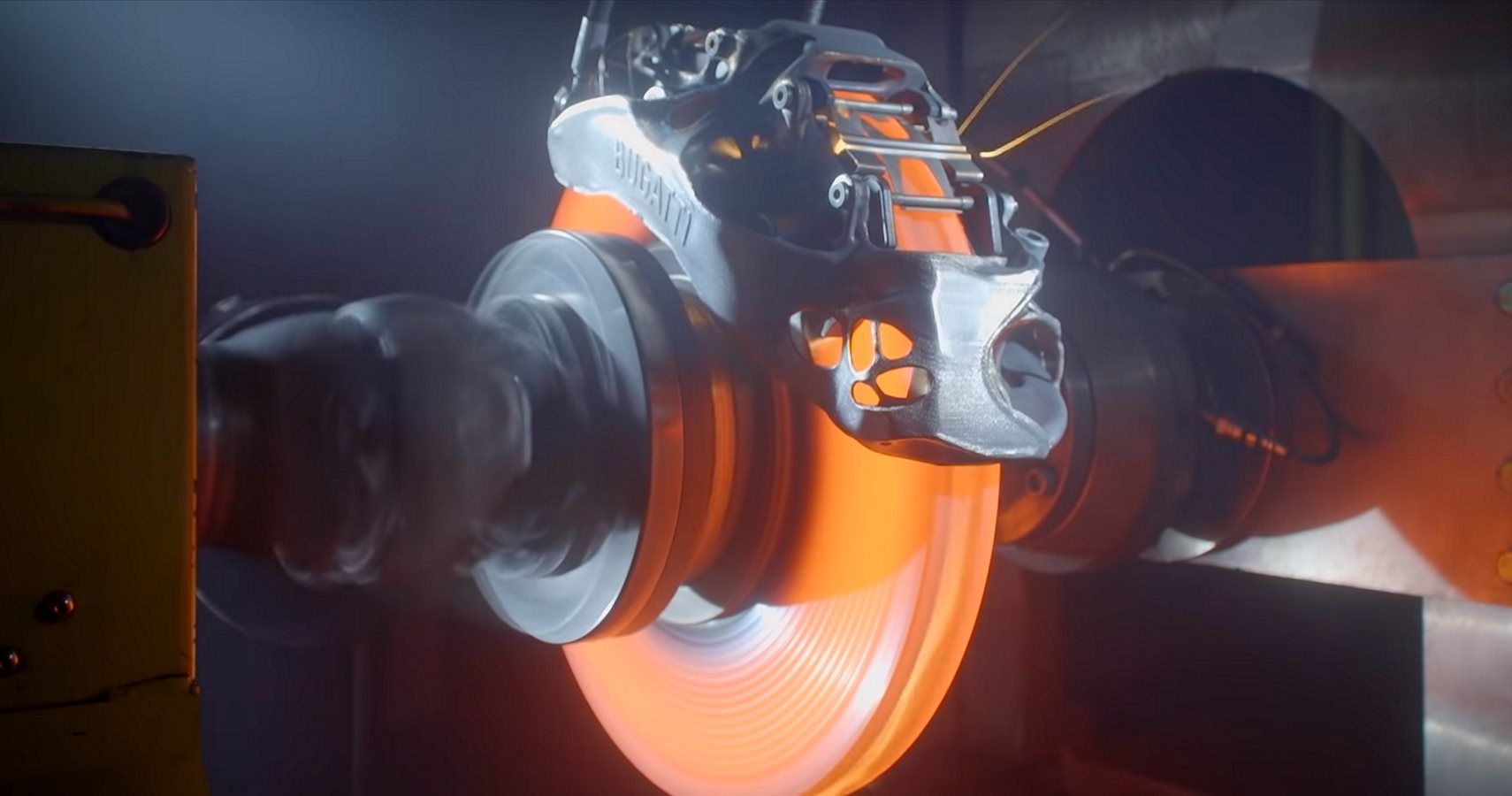Check out Bugatti’s new 3D printed brake caliper as it undergoes some strenuous testing.
We last heard of Bugatti’s new brake caliper design in early 2018 when the French hypercar maker announced a breakthrough in automotive engineering. Using complicated computer modeling, Bugatti created a very exotic-looking brake caliper made out of pure titanium that had a strangely organic shape.
At the time, Bugatti said it was the world’s first functional component made out of titanium using a 3D printer, which layers small amounts of substances on top of each other to create real-world objects--much like how a laser printer uses toner to create images on a page.
In cooperation with the Laser Zentrum Nord of Hamburg Institute, Bugatti created their fancy caliper and said they’d begin vehicle trails in the first half of 2018. One year later, and Bugatti is giving is an update in the form of a very impressive demonstration on YouTube.
The video description tells us this is an “eight-piston monobloc brake caliper” that can stop a Bugatti Chiron “from 100 to 0 in 2.5 seconds." We assume that 100 is in mph as it’s a little more impressive than 100 kph, which works out to just over 60 mph.
RELATED: BUGATTI SHUTS DOWN RUMORS OF POSSIBLE SUV
Rather than show a video of a Chiron stopping from regular highway speeds, we’re instead presented a testing lab where an artificial wheel is spun up to 233 mph. Then the titanium caliper presses down to stop it dead, causing the rotor to glow red, then orange, and finally a bright and fiery white on the third test. Sparks spray everywhere as the rotor and brake pads are turned into a fine mist of highly excited molecules.
Rotor temperature nearly reaches 1,900 degrees Fahrenheit. For reference, that’s hot enough to melt copper, brass, and bronze.
Bugatti’s caliper seems to come away from its ordeal with only minor coloration from the intense heat. An impressive display, although those brake pads are surely done for and need to be replaced.

